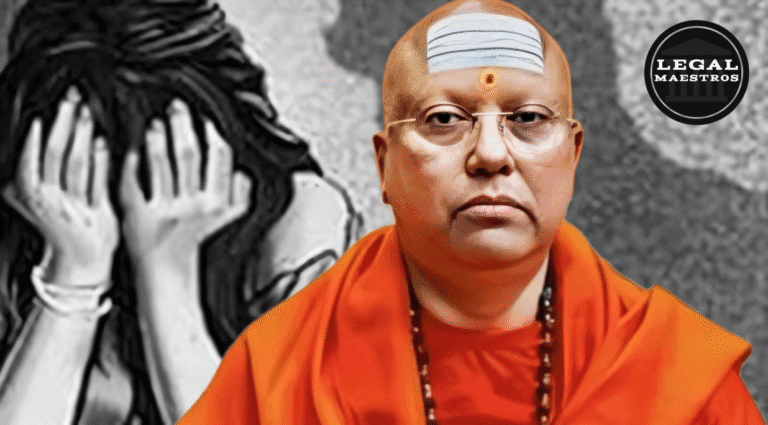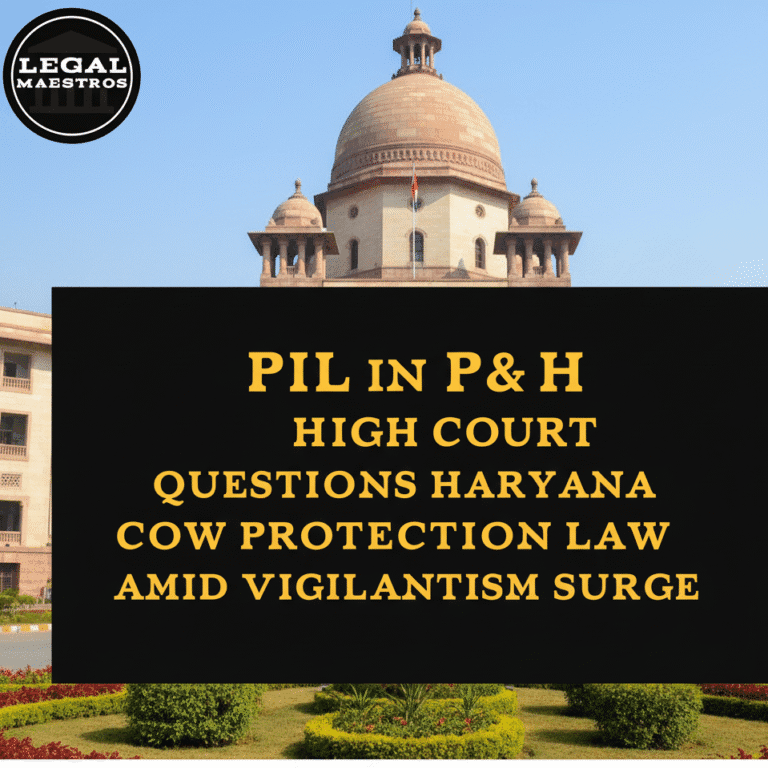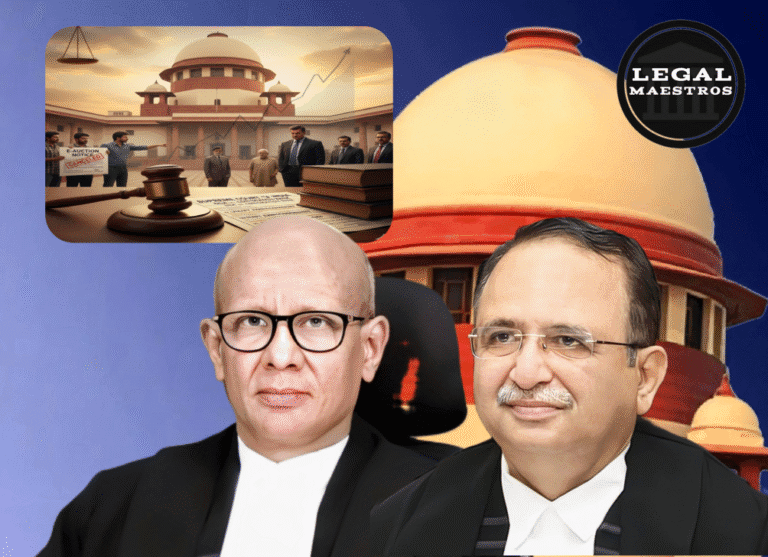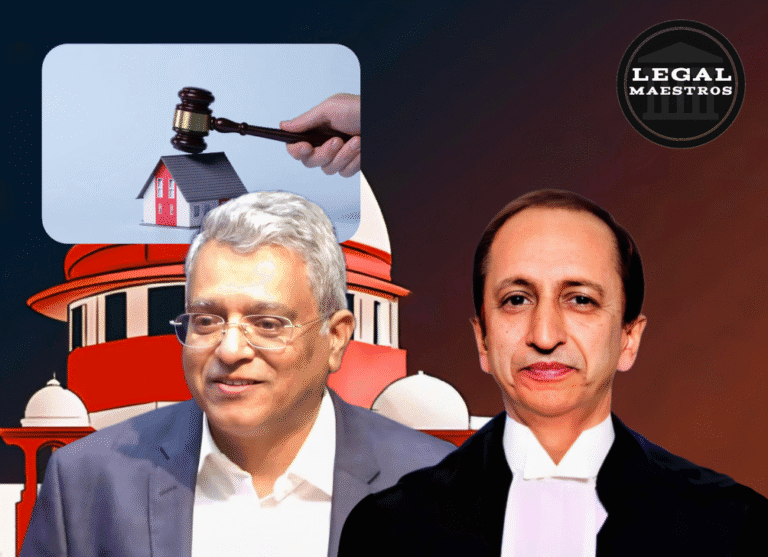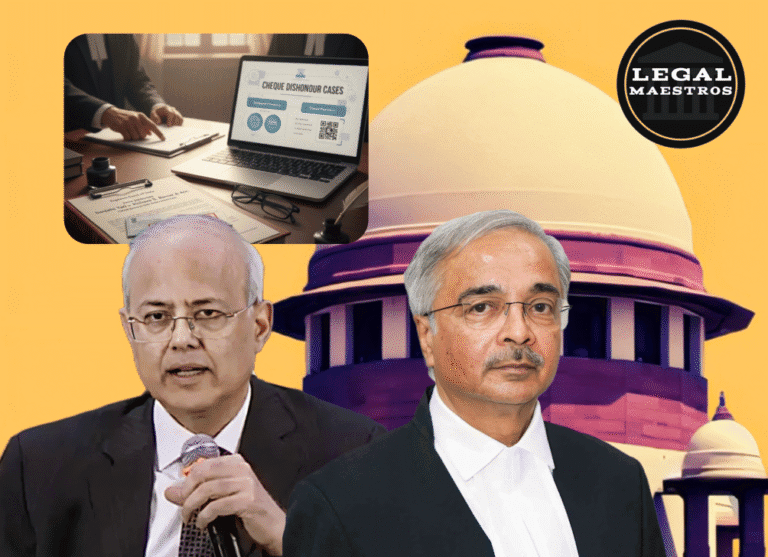
Waqf (Amendment) Act 2025: Supreme Court’s Live Hearing, Keep Checking Legal Maestros for Updates
Introduction
In India, the Waqf (Amendment) Act, 2025, which is sometimes referred to as the UMEED Act, has emerged as a central topic of discussion in both the legal and political spheres. There are currently petitions being heard by the Supreme Court that challenge the constitutional legality of this Act. It is possible that the conclusion of these proceedings will have substantial repercussions for the administration of waqf holdings and the rights of religious communities throughout the nation. ([Vajiram & Ravi][1], [Live Law][2], and [Associated Press][three])
The history of the Waqf Amendment Act 2025 has been provided.
The Waqf (Amendment) Act, 2025 was passed into law in order to bring about changes in the administration of waqf properties, which are in accordance with Islamic law charitable endowments. With the intention of promoting openness, accountability, and efficiency in the management of waqf assets, the government introduced this Act with the declared goal of achieving these goals. There have been significant modifications made, including as the abolition of the ‘waqf by user’ provision, the incorporation of non-Muslim members into waqf boards, and the implementation of the Limitation Act across waqf holdings. [Vajiram & Ravi][1] and [Bar and Bench – Indian Legal news][4] are two sources.”
Provisions of the Act That Are Crucial
The Act brings about a number of substantial modifications to the waqf law that is now in place. Among the most noteworthy is the incorporation of non-Muslim members onto the national and state waqf boards, which is done with the intention of fostering an inclusive environment. Additionally, the ‘waqf by user’ provision, which had previously enabled assets to be recognized as waqf on the basis of long-term religious usage, is eliminated by the Act for the same reason. In addition, the Act applies the Limitation Act of 1963 to waqf properties in order to avoid lengthy legal battles from occurring. Other clauses include the ban of waqf on tribal properties, which is outlined in Schedules V and VI of the Constitution, as well as the protection of inheritance rights, particularly for women and children. The authors, Vajiram and Ravi,
For More Updates & Regular Notes Join Our Whats App Group (https://chat.whatsapp.com/DkucckgAEJbCtXwXr2yIt0) and Telegram Group ( https://t.me/legalmaestroeducators )
There are both challenges and criticisms.
Significant resistance has been voiced by a variety of different groups in response to the Waqf (Amendment) Act, 2025. There are others who believe that the presence of non-Muslim members on waqf boards is detrimental to the ability of the Muslim community to maintain its religious discretion. The elimination of the clause that allows for “waqf by user” is regarded as a potential risk to properties that have been utilized for religious purposes for multiple generations without the maintenance of formal documentation. In addition, the implementation of the Limitation Act is considered to be a step that has the potential to result in the forfeiture of waqf assets due to the fact that it is a legal technicality. ([Wikipedia][5], [Associated Press][3], [Vajiram & Ravi][1], [Lexology][6])
**Hearings Before the Supreme Court**
A number of petitions that question the constitutionality of the Waqf (Amendment) Act, 2025 are presently being considered by the Supreme Court of the United States. According to the petitioners, the Act infringes upon the fundamental rights of the Muslim community, including the right to govern religious affairs as outlined in Article 26 of the Constitution. The Supreme Court is currently deliberating over whether or not to provide interim relief, which may mean putting some provisions of the Act on hold until a ruling is made that is definitive. According to [Live Law][7] and [@EconomicTimes][8],
The Defense of the Government
In order to combat mismanagement and corruption in waqf properties, the government argues that the Act is an essential reform that must be implemented. One of the arguments presented is that the incorporation of non-Muslim members is meant to bring about a variety of ideas and to enhance governance. Taking the ‘waqf by user’ provision out of effect is a reasonable step to take in order to avoid unauthorised claims being made on properties. One of the steps that is being taken to guarantee that disputes are resolved in a timely manner is the implementation of the Limitation Act. [9] [Lawful Legal Statutes]
Protests and responses from the general public
Large-scale demonstrations have taken place all over the nation as a direct result of the Waqf (Amendment) Act, 2025 being passed into law. Demonstrations have been organized by a number of Muslim organizations, including the All India Muslim Personal Law Board, with the purpose of expressing their belief that the Act violates the rights of individuals to religious freedom and property. In locations such as Murshidabad and Unakoti, for example, there have been instances of violent protests that have resulted in casualties and arrests. In order to ensure that law and order are maintained in specific regions, the government has stationed security forces there. [5] According to Wikipedia
Implications for the Allowance of Religious Expression
Significant problems concerning religious liberty and the role of the state in the administration of religious endowments have been brought to light as a result of the controversy that has surrounded the Waqf (Amendment) Act, 2025. It is a delicate balancing act to ensure that there is transparency in property management while still preserving the sovereignty of religious institutions. The conclusion that the Supreme Court makes in this case will establish a precedent for how similar concerns are handled in the event that they arise in the future. [5] According to Wikipedia
Waqf (Amendment) Act, 2025 is a piece of legislation that would bring about a substantial change in the way waqf properties are managed in India. The Act has given rise to worries regarding religious liberties and autonomy, despite the fact that the government may have the goal of enhancing governance and preventing misuse throughout its implementation. The proceedings that are currently taking place before the Supreme Court will be extremely important in evaluating whether or not the Act breaches the constitution and how it will affect the Muslim population. During the course of the ongoing judicial procedures, it is of the utmost importance to keep track of developments and have an understanding of the general consequences for the rights to religious freedom and property in India. ([Associated Press News][3]

